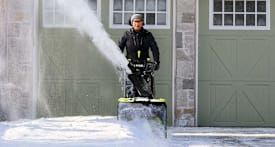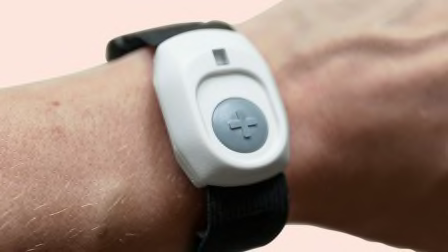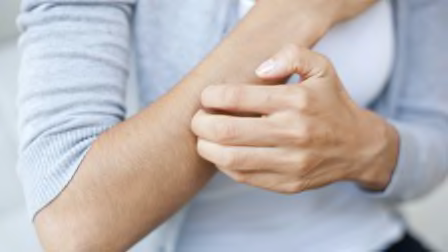How to Combat Dryness in Winter
Steps to soothe your eyes, lips, and skin
When you shop through retailer links on our site, we may earn affiliate commissions. 100% of the fees we collect are used to support our nonprofit mission. Learn more.

W inter air is dry both inside and out because of the season’s lower humidity levels. “Lower outdoor temperatures hold less moisture, as does heated indoor air,” says Shari Lipner, MD, PhD, a dermatologist at Weill Cornell Medical Center and New York-Presbyterian Hospital in New York City. “Those low moisture levels in the air directly affect the moisture levels in your body.”
In addition, our eyes and skin tend to become drier as we age because of hormonal fluctuations, changes in the amount of oil and tears our skin and eyes produce, and even medications like diuretics and statins. The result can be uncomfortably dry eyes, chapped skin, and irritated nasal passages. A few simple steps can help.
Be Water Wise
As you roll into winter, adjusting your bathing and skin-care habits can help protect your skin. A hot bath or shower may sound great on a cold day, but hot water will dry out your skin further. Opt for warm water, keep showers and baths short, and wash with a gentle moisturizing, fragrance-free liquid or bar soap. “When you get out of the shower, don’t completely dry off,” Lipner says. “Leave skin slightly damp and immediately slather on moisturizer to hold that moisture in your skin.”
Shield Your Skin
A couple of simple protective measures can make a big difference when the weather is chilly and dry. For instance, cover up as much as possible (with gloves plus a scarf wrapped around the lower part of your face) while you’re outdoors to reduce your skin’s contact with dry air and reduce the likelihood of chapping. Apply sunscreen with an SPF of 30 or higher to skin that’s exposed, even if the weather is overcast. When indoors, wear rubber gloves while doing dishes or using cleaning products around the house.
Ease Eye Dryness
If you’re already dealing with dry eyes, winter can make the condition worse. “Dry—and especially cold and windy climates—can cause increased evaporation of the tears from the surface of the eyes,” says Ashley Brissette, MD, a spokesperson for the American Academy of Ophthalmology.
A Humidifier Can Help
A comfortable indoor humidity level is 30 to 50 percent, but that percentage can drop to below 20 in winter. A cool-mist humidifier, especially when used overnight in bedrooms, can keep skin, eyes, and nasal passages from drying out. The moist air can also help you breathe more easily while you’re asleep and make it more difficult for viral particles to take hold. Members can view our humidifier ratings. Here’s a CR Best Buy model.
Editor’s Note: This article also appeared in the December 2021 issue of Consumer Reports On Health.




















